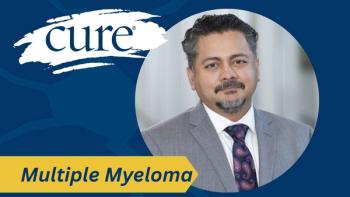
The Patient Voice Matters in Cancer Care
Researchers examined what goes into treatment decision-making for patients with multiple myeloma.
Patients with multiple myeloma should voice their opinions on treatment preferences to their health care team, according to study findings presented during the American Society of Clinical Oncology (ASCO) Annual Meeting.
Researchers from Massachusetts General Hospital Cancer Center in Boston wanted to understand specific preferences and perceived tradeoffs patients were willing to make, and how they were different based on where they were in treatment.
Trained interviewers conducted hour-long phone interviews using guided discussion with 21 patients with multiple myeloma from April to May 2018. The mean age was 64 years old and mean time since diagnosis was nearly five years. Eleven patients had received initial treatment for multiple myeloma and 10 had early relapse with one to two previous lines of therapy.
“We looked at newly diagnosed patients, we looked at patients who had one to two lines of treatment and we looked at it beyond that,” Dr. Noopur Raje, director of the Center for Multiple Myeloma at Mass General, said in an interview with CURE®. “To me, this was very interesting because your choices change depending on where you are in your disease state and what is it that has impacted you along your journey with the disease.”
The researchers identified three themes: treatment
It was also discovered that health care providers give more general information on treatment, such as efficacy and tolerability, to new patients but go into more detail while discussing treatment with those who have received one or two prior therapies.
Effectiveness and side effects were “top-of-mind” factors that influenced patient preference, researchers concluded. Newly diagnosed patients were most concerned about side effects. And both groups of patients ranked quality of life as important.
“We looked at patients at the time of diagnosis, and what we found was that at the time of diagnosis patients were fairly dependent on their health care providers,” Raje said. “They were ‘go, go, go’ and wanted to get the treatment done. There were not a lot of options, and I think that is pretty straightforward when you think about multiple myeloma…When it comes to second-, third-, fourth-line treatment, there was a little bit of a difference. The difference here was that there was a lot more discussion on toxicity and there were a lot more choices.”
Since there is not just one medication to treat patients with
“Cancer does not affect one person. It's the entire family and friends and support system. What it does to all of them is very important,” Raje said. “The more we engage not just the patient, but the caregivers as well, I think outcomes are going to be better in patients. We are going to do much better, and it's going to allow patients to get more empowered.”



